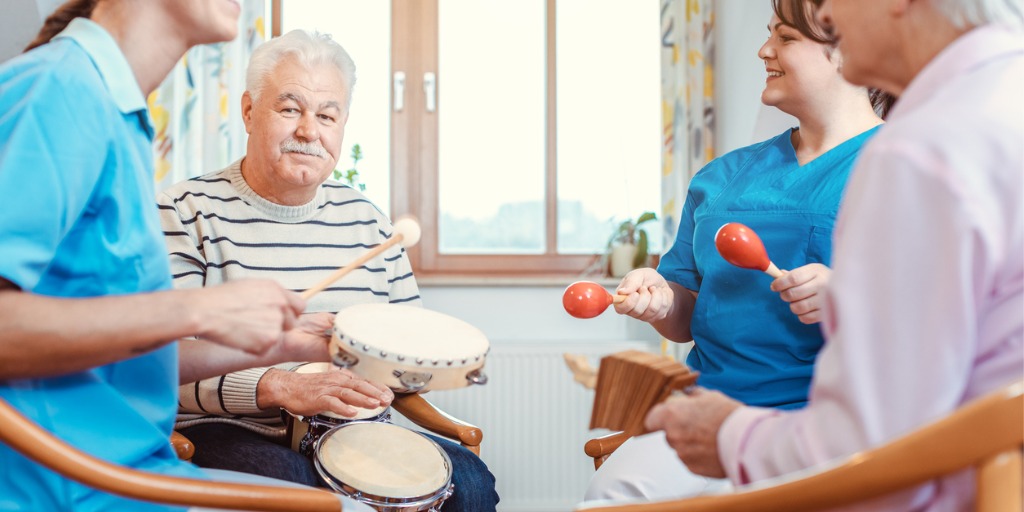The healing power of music: How music therapy supports healthy aging


March is Music Therapy Awareness Month in Canada—a time to celebrate the remarkable ways that music can support our health and well-being. This month, we’re shining a spotlight on music therapy and how it can help older adults live fuller, healthier lives.
What is Music Therapy?
Music therapy is a research-based practice that uses music to address physical, emotional, cognitive, and social needs. Delivered by certified music therapists, sessions can include listening to music, singing, playing instruments, songwriting, or even moving to music. The key is that music therapy is personalized to each individual’s needs and goals.
The Benefits of Music Therapy for Older Adults
As we age, we may experience a variety of health challenges—from cognitive decline and chronic pain to feelings of loneliness and depression. Music therapy offers a unique, non-invasive way to support well-being across many of these areas:
1. Enhancing memory and cognitive function Music can stimulate parts of the brain associated with memory and emotion. For people living with dementia, familiar songs can evoke long-lost memories and encourage meaningful interactions.
2. Reducing anxiety and depression Listening to or creating music can improve mood, decrease stress levels, and provide a sense of comfort and connection.
3. Supporting physical rehabilitation Rhythm and movement can help improve motor skills and coordination, which is especially helpful in stroke recovery or for individuals with Parkinson’s disease.
4. Encouraging social connection Group music therapy sessions can combat social isolation and build a sense of community through shared experiences.
Where to find music therapy support
- Try a local program: Many community centres, long-term care homes, and hospitals offer music therapy sessions.
- Ask your healthcare provider: They may be able to refer you to a certified music therapist.
- Bring music into your daily routine: Whether it’s listening to your favourite songs, singing with a friend, or dancing at home, small musical moments can make a big difference.
This March, take time to recognize the incredible role music can play in aging well. Whether you’re a caregiver, a health professional, or someone exploring ways to stay healthy and engaged later in life, music therapy is a powerful tool worth exploring.
McMaster Optimal Aging Blog Posts are written by faculty, staff, PhD students, and external collaborators, and are assessed for accuracy by members of the Portal scientific leadership team.
DISCLAIMER: These summaries are provided for informational purposes only. They are not a substitute for advice from your own health care professional. The summaries may be reproduced for not-for-profit educational purposes only. Any other uses must be approved by the McMaster Optimal Aging Portal (info@mcmasteroptimalaging.org)